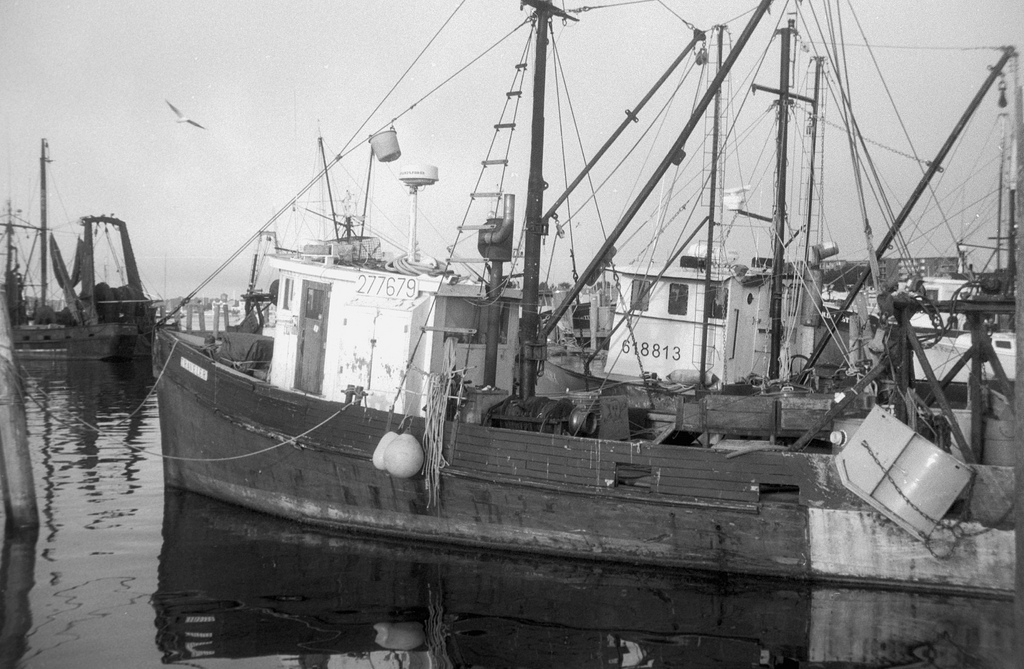This article is written in reaction to the author’s attendance of the October 3rd, 2011 public field hearing of the Senate Committee on Commerce, Science and Transportation to review Massachusetts Fishery Management Plans.
It can be easy to forget in our modern metropolitan world, the long history of the New England fisherman. The ground-fish industry was the first industry in New England and for the next 360 years would be a prosperous industry with little regulation and forever increasing profits. Then technology (including echolocation to track schools of fish, the ability to freeze fish to ship it farther and stay at sea longer, and other tools that made ships bigger and faster) came along in the 1970s and allowed fishermen to catch more fish than previously thought possible. Within the decade the cod populations had crashed and the species became commercially extinct. When presented with this fact, many New Englanders will shake their head and describe the latest meal of cod they had, and then tell you that clearly the cod are just fine.
But consider for a moment that cod used to be a staple fish – similar to the way we think of salmon today. The frozen fishcakes of the 1970s were composed of cod, compared to today’s rather vague ‘white fish’. Now cod is only something you eat in New England. Unregulated, unsustainable fisheries are widely recognized as problematic by all the stakeholders, including the fisherman who Congressman John Tierney (D-MA) referred to as “natural environmentalists.”
Since the collapse of the cod population, the New England fishing industry has taken significant strides to combat the problem of overfishing. They succeeded through what Stephen Welch, a commercial fisherman operating out of Scituate, MA called, “share sacrifice…We know about sustainability and responsibility… We know it is in our best interest.” The efforts of the industry to regulate overfishing go back 15 years. This has led to more than half of the ground-fish species stock being recovered and returned to healthy population levels. But the industry is not there yet, and the process seems to be at an utter standstill.
The level of frustration at the new regulatory system and failure to effectively communicate is poisoning the industry. Jobs are disappearing and wealth within the industry is coalescing among a small proportion of the largest fishing boats, leaving out profits for the majority of smaller vessels. Congressman Barney Frank (D-MA) put it bluntly when he said there were only two regulatory industries that have such a hostile relationship with the people under their control: the Drug Enforcement Agency and the Fishing Industry.
While this may be an extreme view, there can be little doubt that the industry suffers from what Senator John Kerry (D-MA) described as a “deep sense of disappointment and mistrust our fisherman feel towards how they are treated by federal regulators.” This sense of disappointment is most readily viewed in the industries dwindling profits, especially for smaller boats. As Senator Kerry pointed out, “In 2010, approximately 80 percent of the gross revenues resulted from landings from only 20 percent of active vessels.”
The regulatory system known as the catch-share system was launched by the National Oceanic and Atmospheric Administration 17 months ago, and has “resulted in losses of landings, revenue, and jobs; a controversial reallocation of wealth; and a failure to eliminate chronic costly overfishing or under fishing,” according to Dr. Brian Rothschild of the Department of Fisheries Oceanography School for Marine Science & Technology. Both Rothschild and Dr. Steven Cadrin of the same Department blamed “fuzzy science” that results in catch quotas not based on hard data, but assumptions about the various population levels of the species in question.
The system “[k]nown as ‘catch shares’ or Limited Access Privilege Programs… dedicates a secure share of fish to an individual fisherman, community or fishery association. Each year before the season begins fishermen know how much fish they are allowed to take of the fishery’s Total Allowable Catch. Fishermen are usually allowed to buy and sell shares in order to maximize their profit. This helps drive the fishery to an efficient level and rewards innovative fishermen who can lower costs and deliver a quality product that will fetch a good price on the market.”[1] But combined with other regulations and the launch of a new management system Welch said it would be cheaper for him to sit at home and be an ‘arm-chair captain’, selling his shares, than cover “staff, reporting and monitoring costs, and leasing costs” associated with the system. According to Director of the Massachusetts Division of Marine Fisheries Paul Diodati, “trading and leasing could not mitigate the general insecurity with new sector business practices.” And as we all know, insecurity and uncertainty are terrible for business.
And that is what the fishing industry is: a business. This was the angle that Congressman William Keating (D-MA) was most concerned about, asking again and again about who has the priorities of the small business in mind through all this regulation? By the end of the hearing it was clear that what small businesses need is access to more information about the population levels of the fish they intend to catch, which would allow for more accurate catch share levels. When these businessmen see population patterns that are different from the reported levels upon which they are regulated, it creates mistrust. As Cadrin pointed out, “there are several major deficiencies in our current fisheries science system that do not adequately support the requirements of catch limit and catch shares management policies.”
The fishing industry “supports over 77,000 jobs in Massachusetts” according to Senator Kerry, and some of the nation’s largest fishing ports are here in Massachusetts. It does not bode well that the industry has been bleeding jobs for decades, and there seems to be limited will to tackle the largest challenge facing the industry: trust. Trust in the science, trust in the fisherman, trust in the regulations, and trust in the system to fix the problem. The system is not broken, nor is the industry beyond reform. The hearing highlighted this, but also highlighted the failure of the industry’s leaders to take the bull by the horns, accept the consequences of their actions and move forward. One can only hope that the efforts by the elected officials involved in the issue will give this issue the kick it needs.



